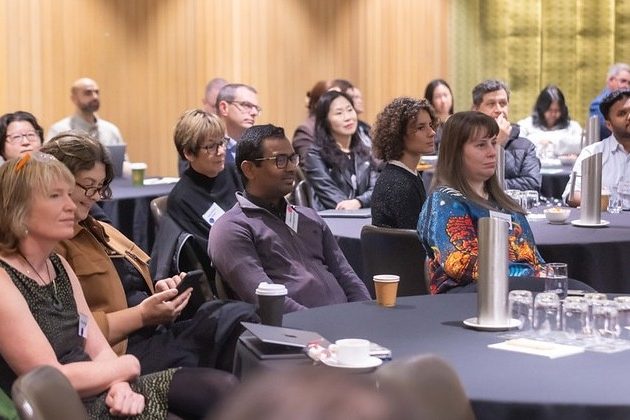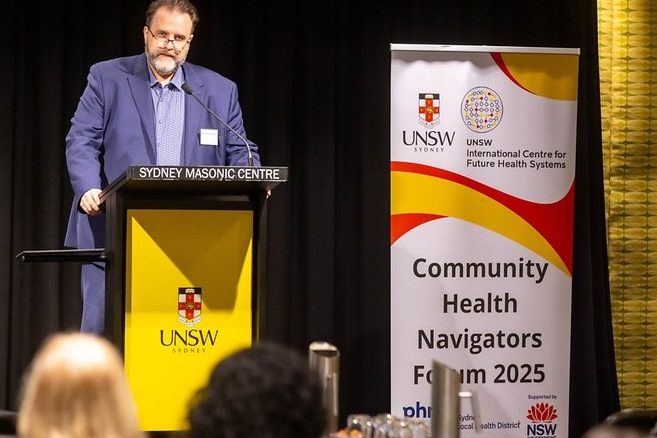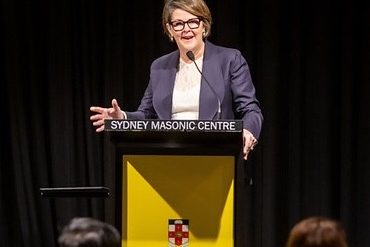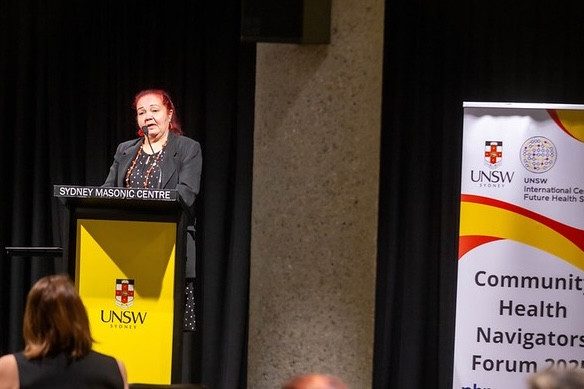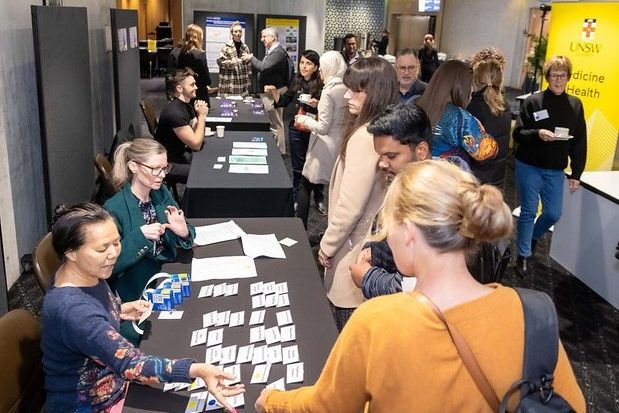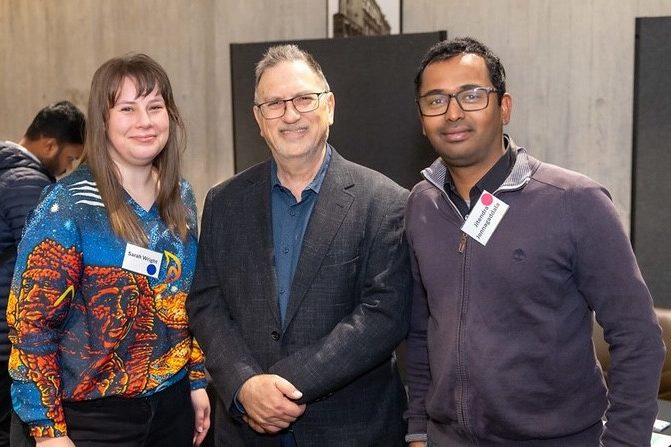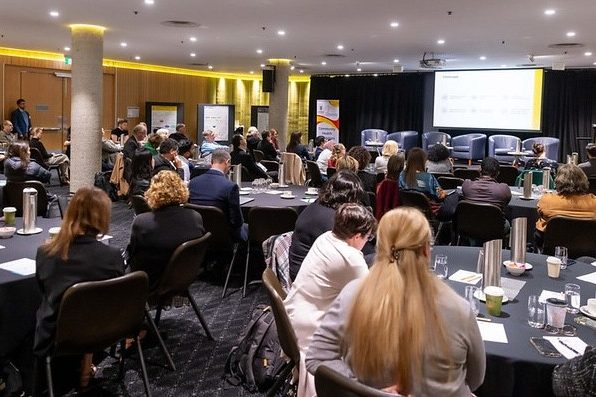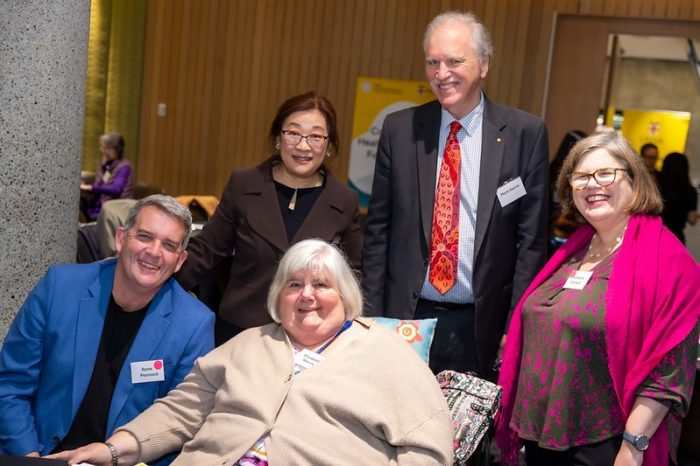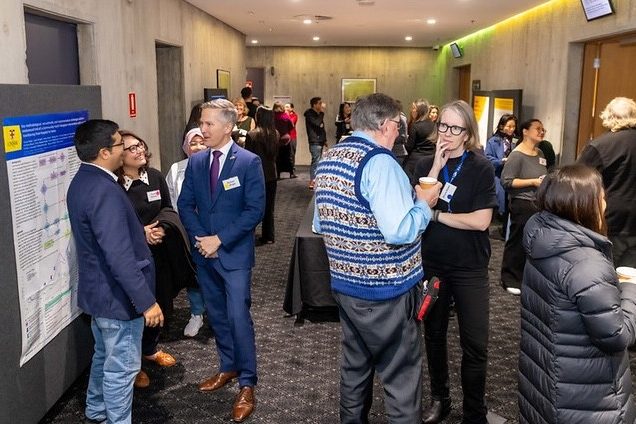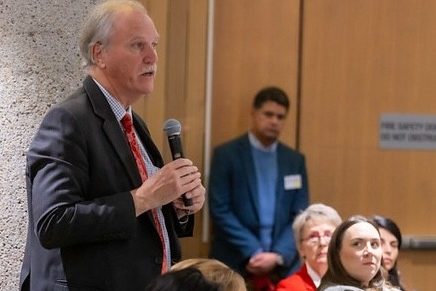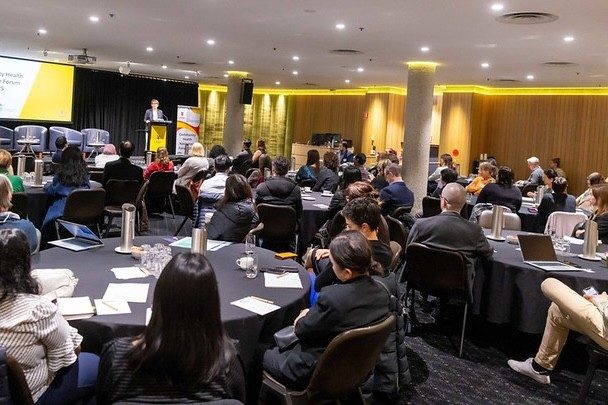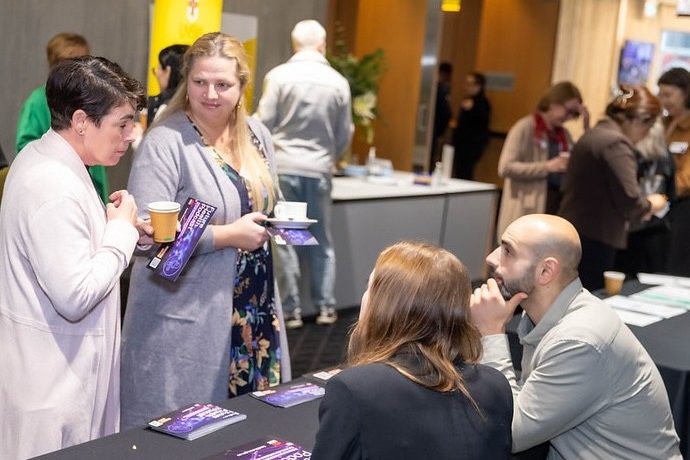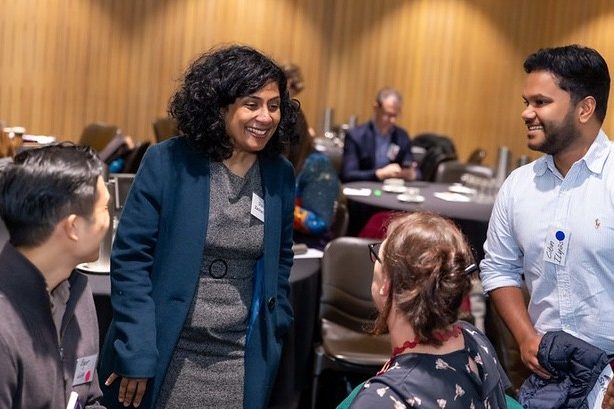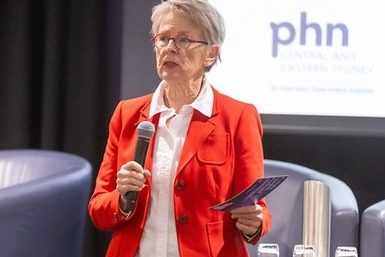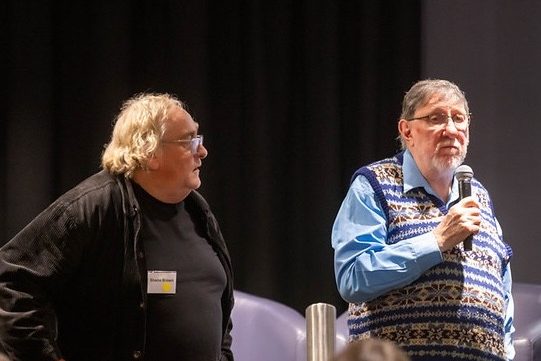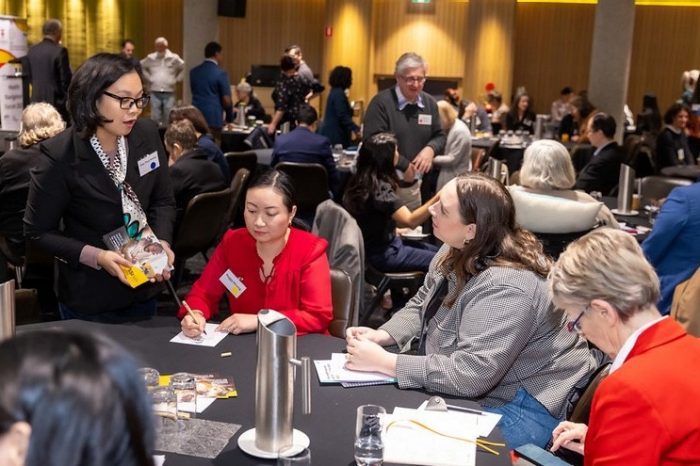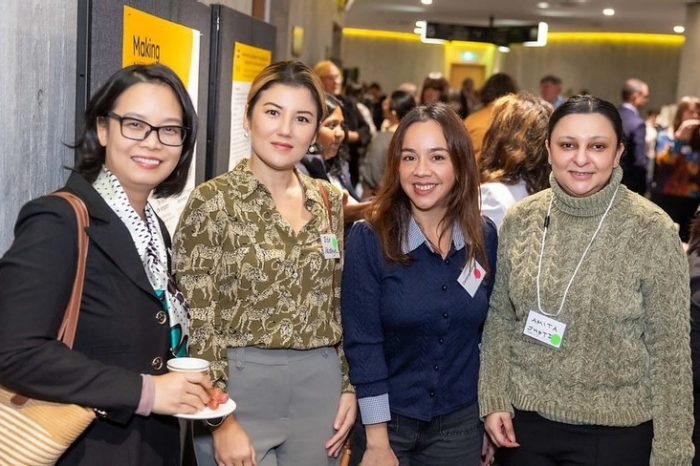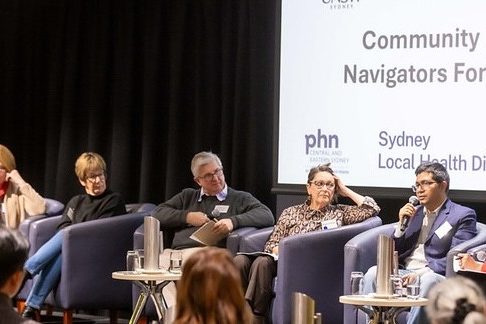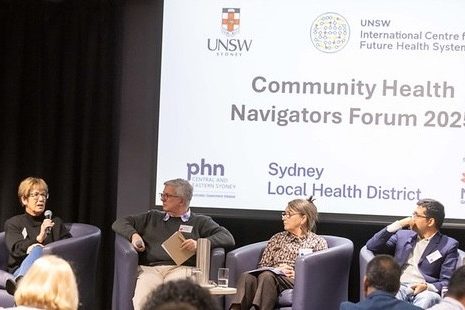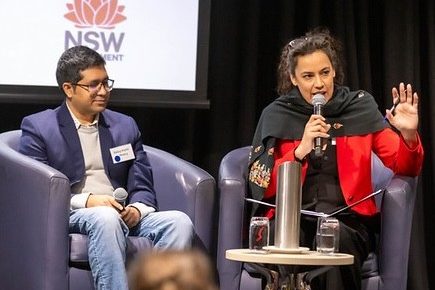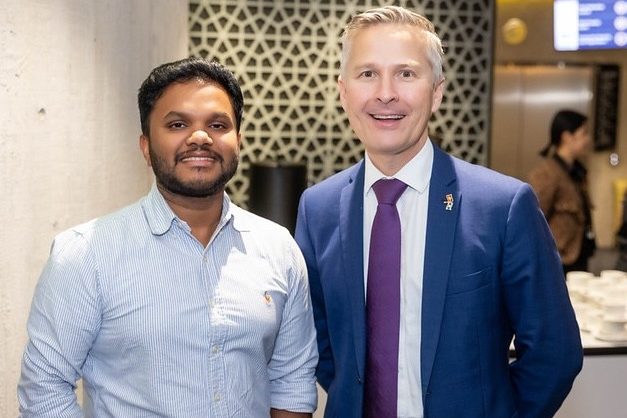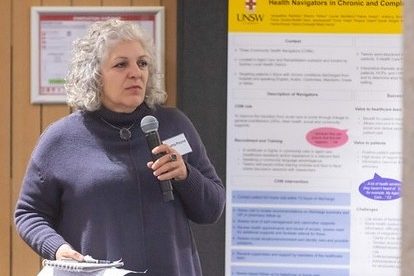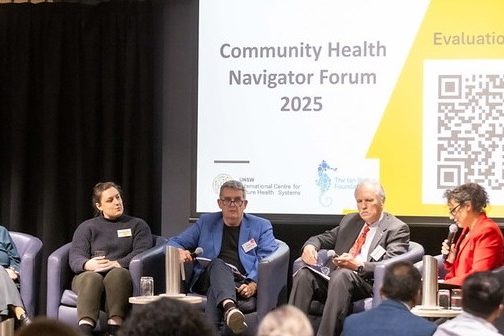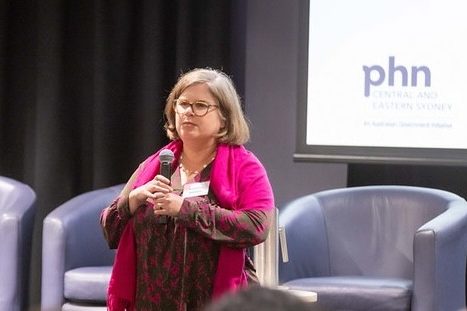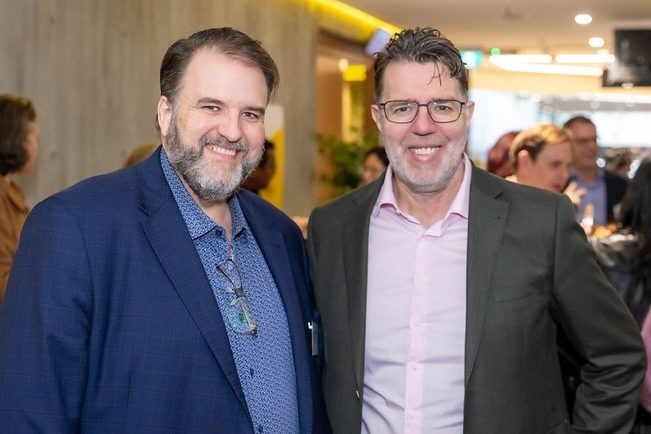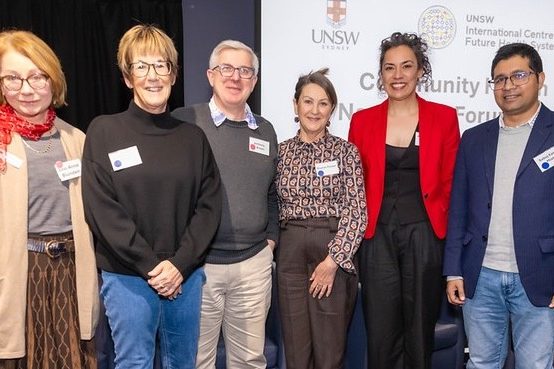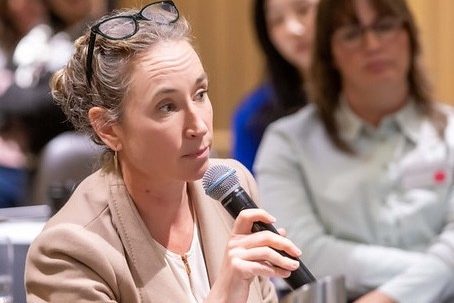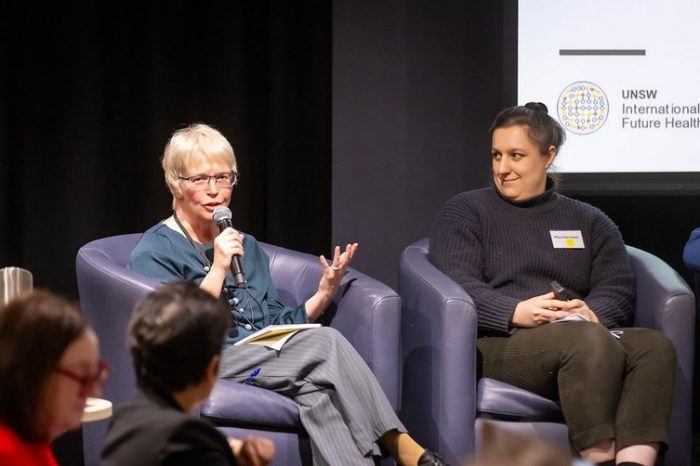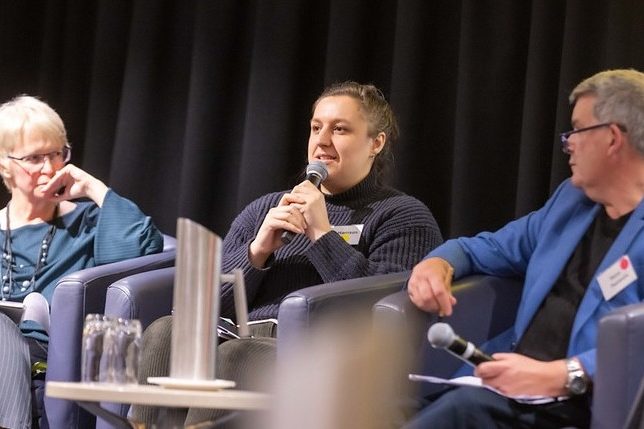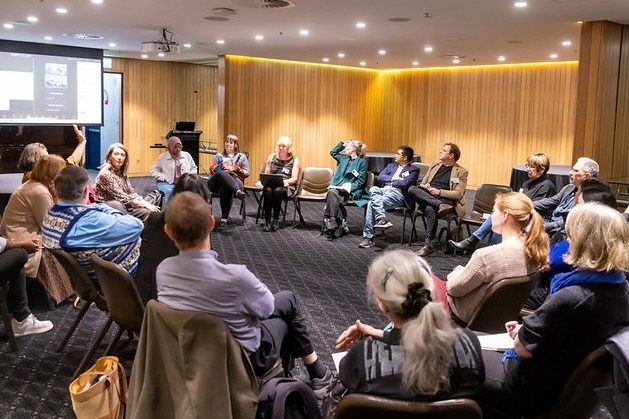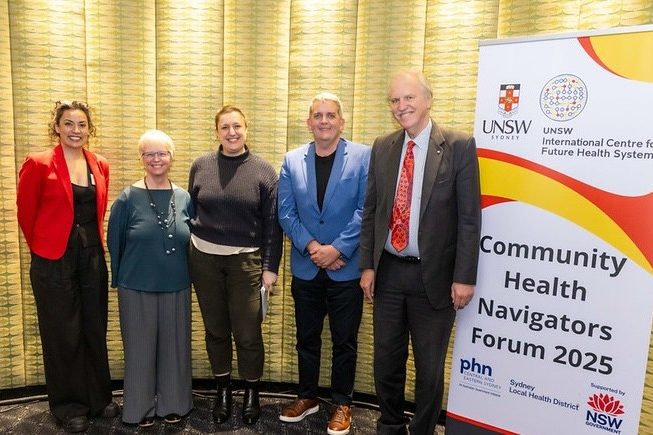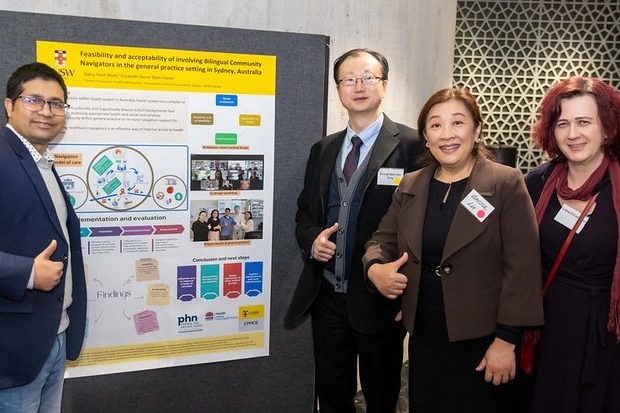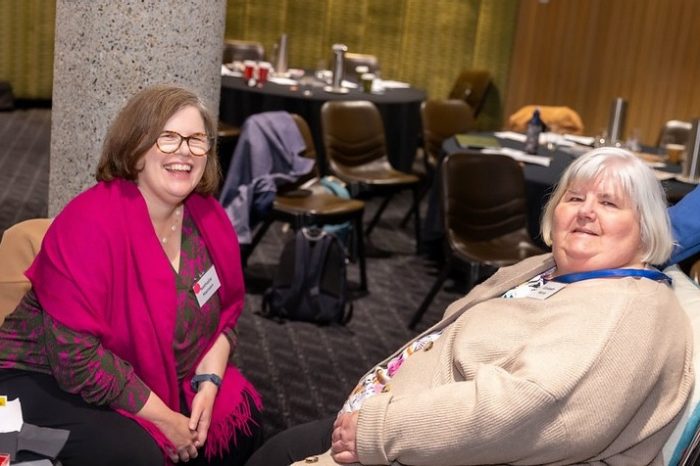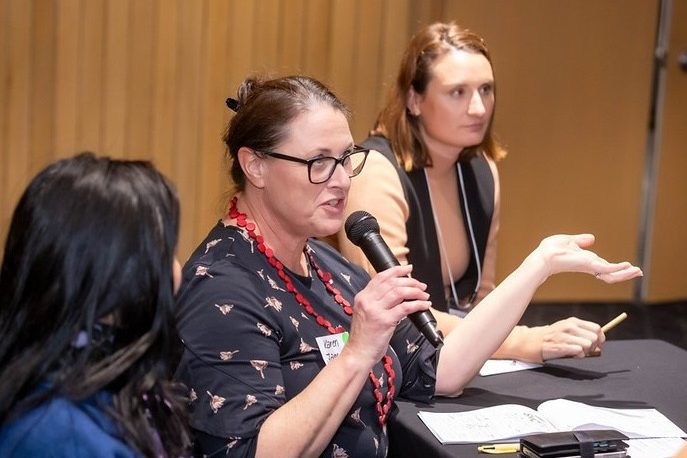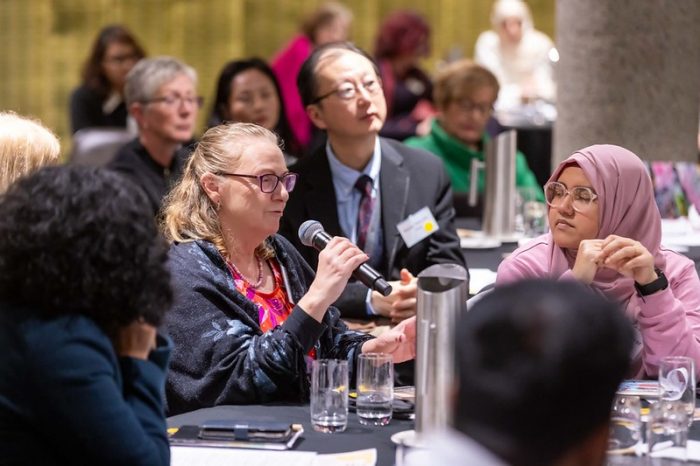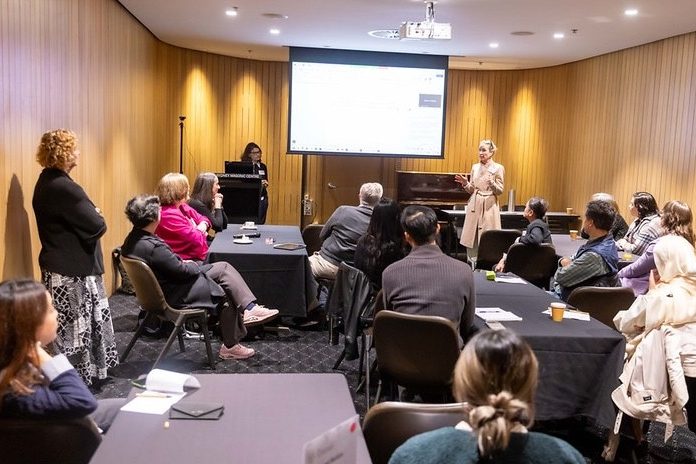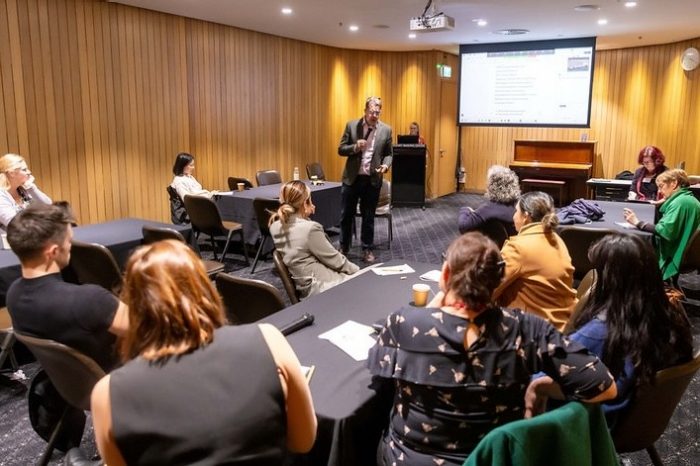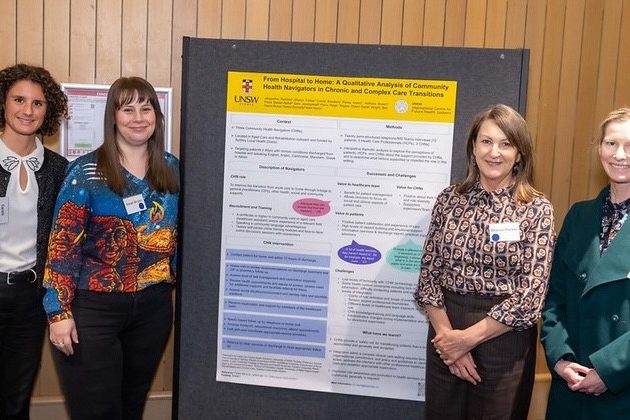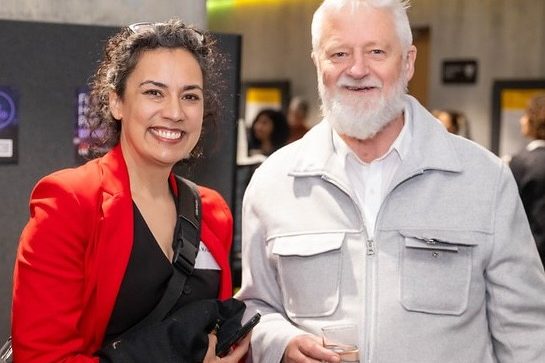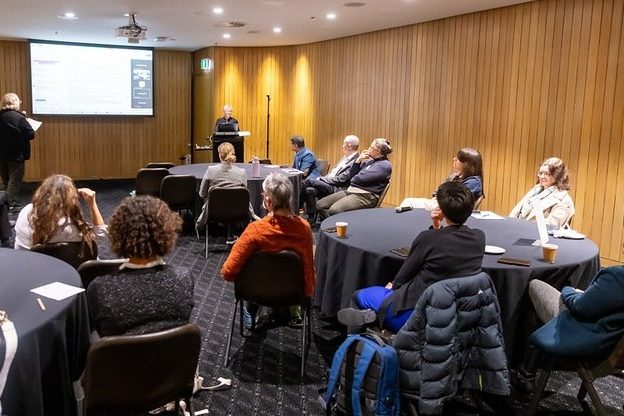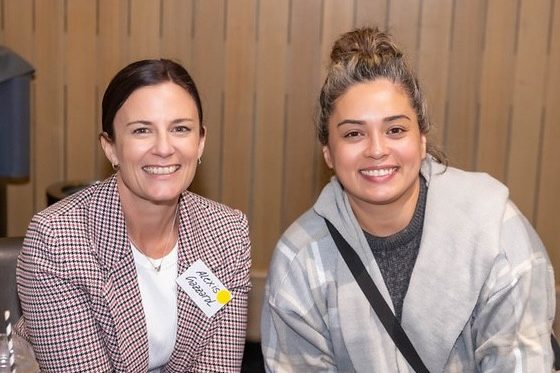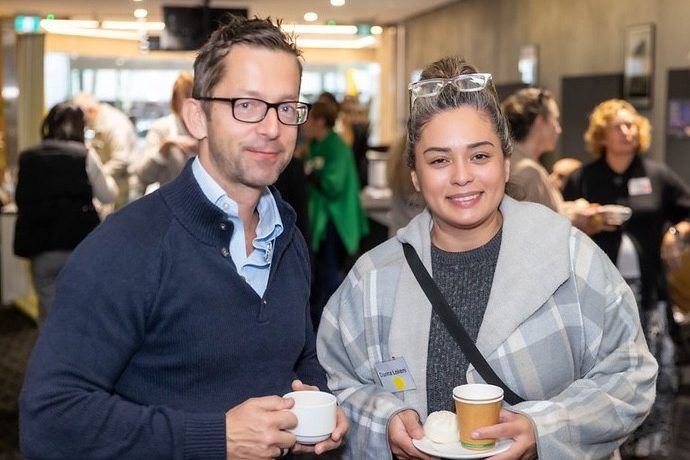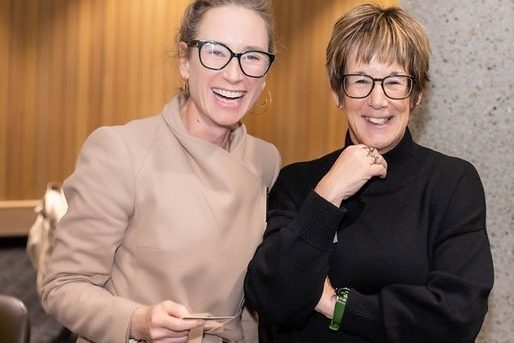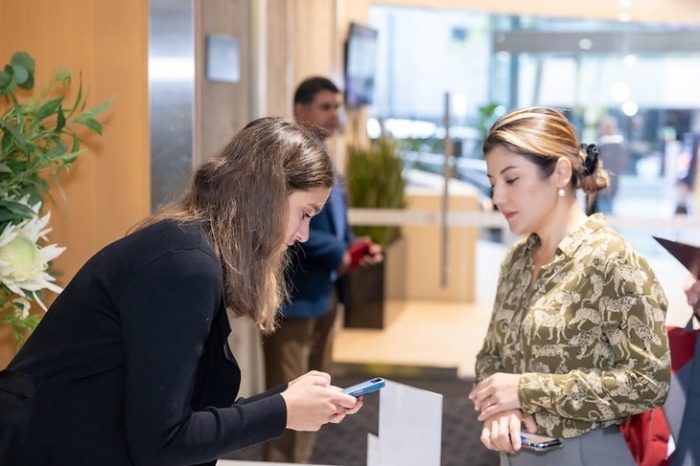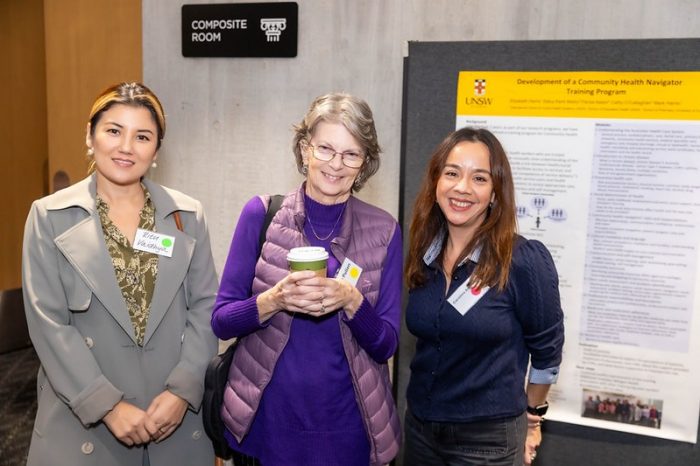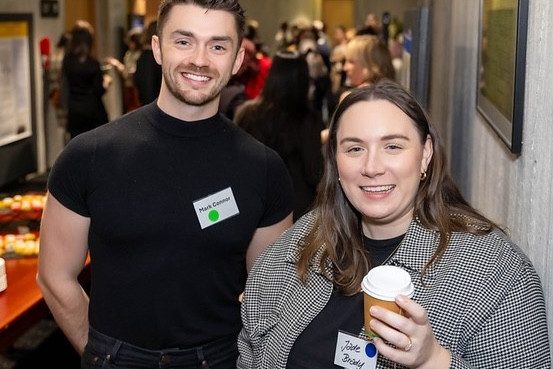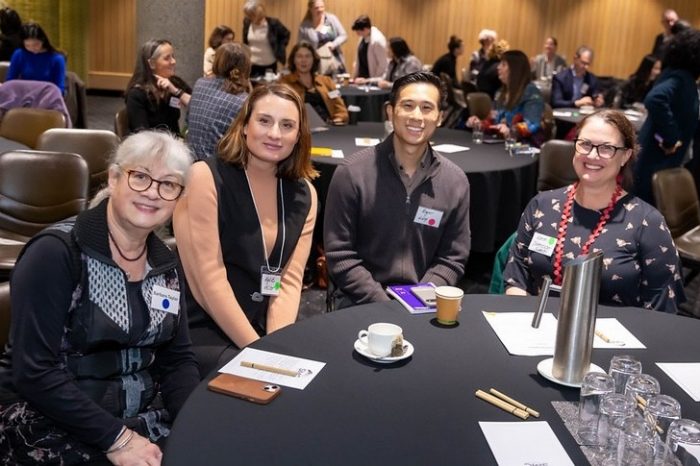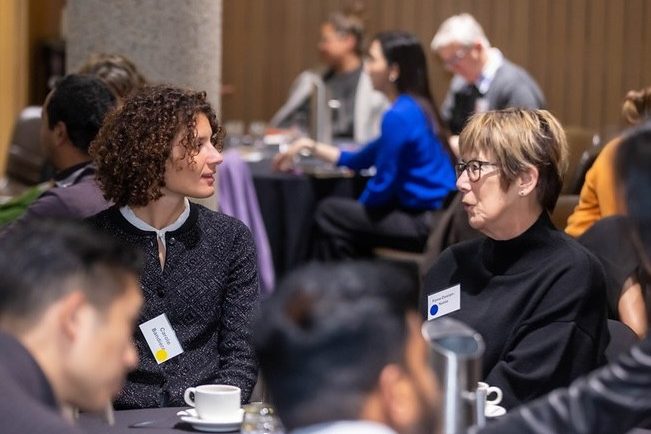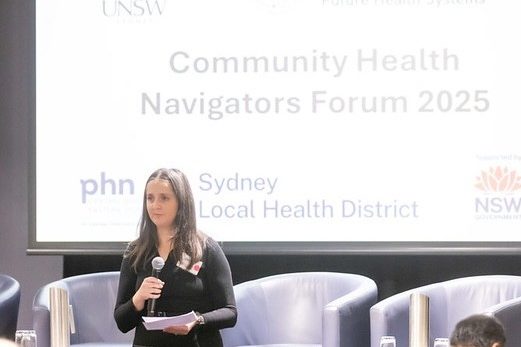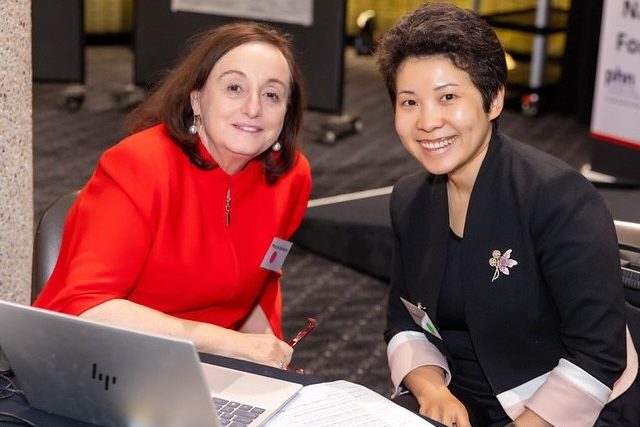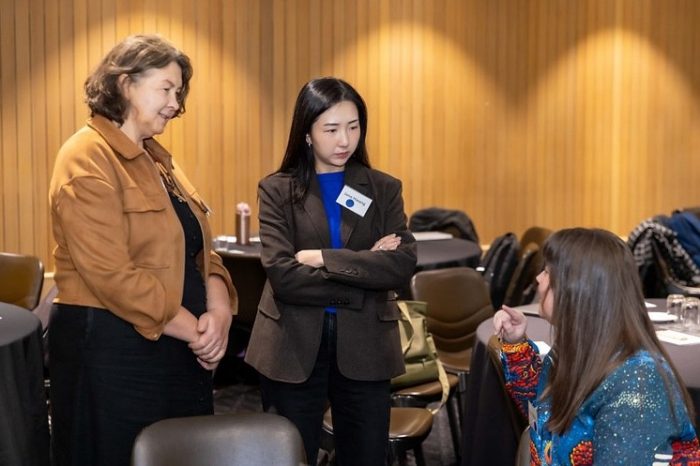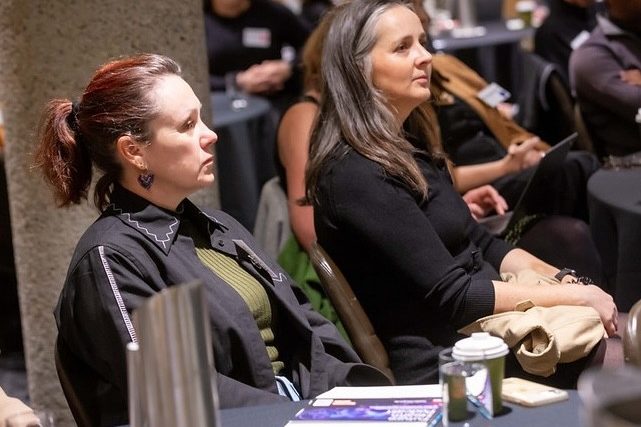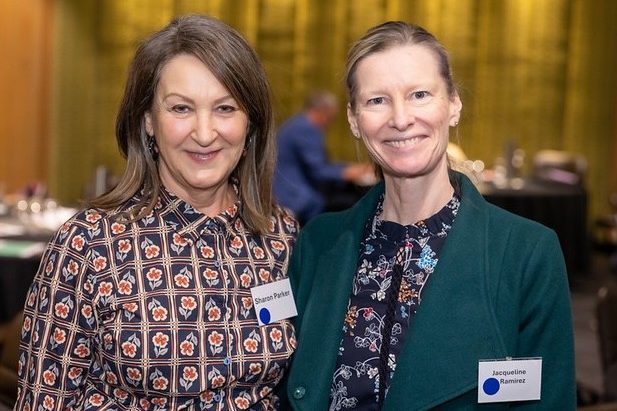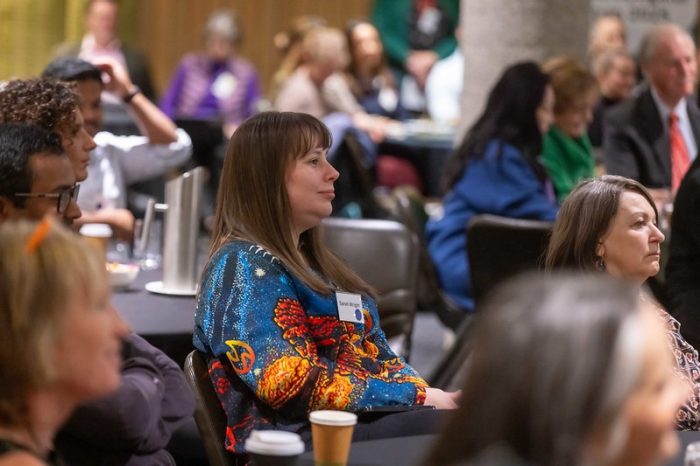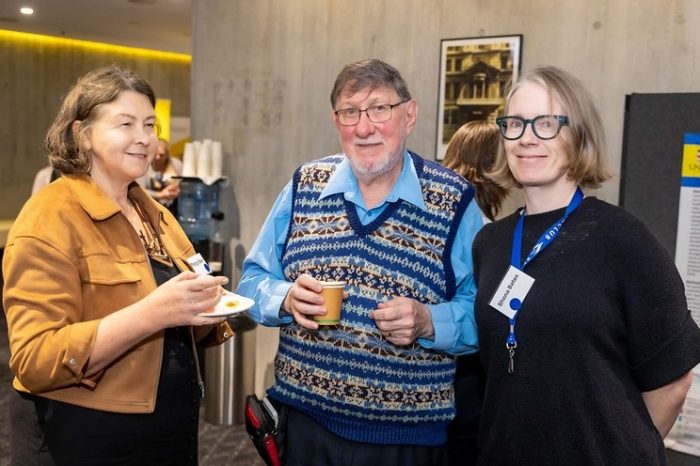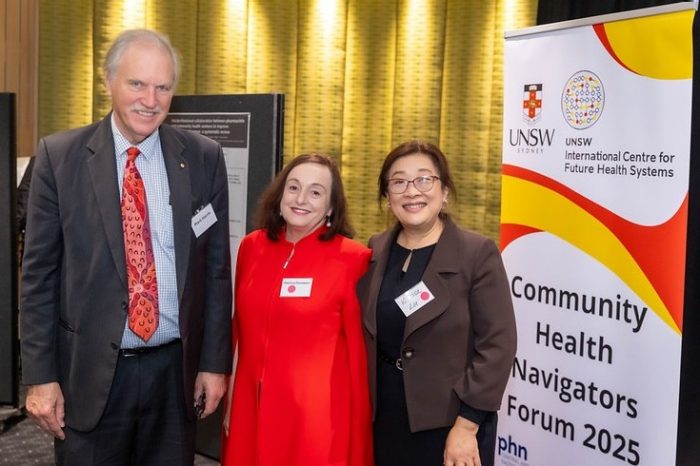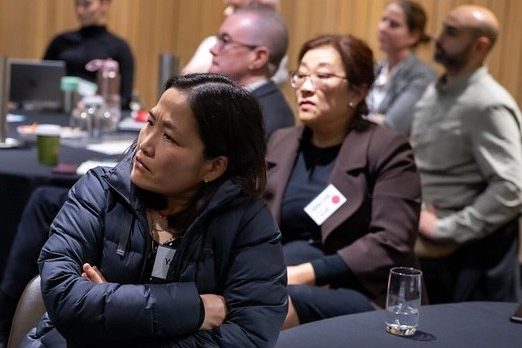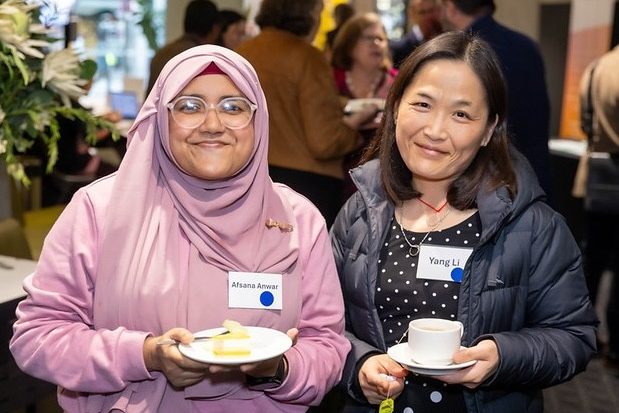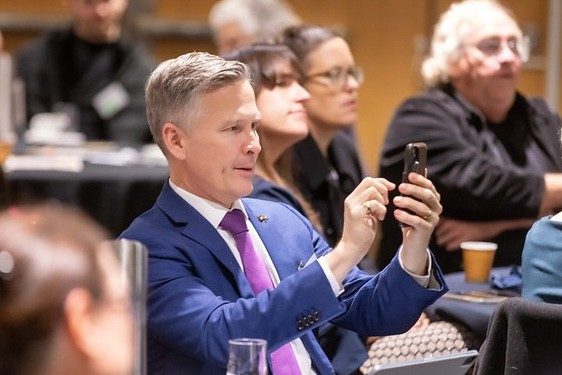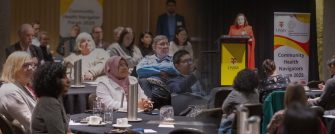
3 June 2025 | Sydney Masonic Centre
Presentations from the Community Health Navigator Forum 2025
All photos by Peter Secheny
About
Building bridges – Navigating pathways – Improving health outcomes
The UNSW International Centre for Future Health Systems (ICFHS) hosted the Community Health Navigator Forum 2025 on 3 June 2025 at the Sydney Masonic Centre.
The Community Health Navigator Forum 2025 was convened by Emeritus Prof. Mark Harris AO and Adjunct Associate Professor Elizabeth Harris AM, both recognised nationally and internationally for their pioneering work in this field.
The Community Health Navigator Forum 2025:
- Shared and showcased current research and best practice models of delivery.
- Debated research and practice priorities.
- Discussed frameworks for researchers and practitioners to build better models of collaboration and capacity to promote Community Health Navigators nationally;
- Considered infrastructure needs to sustain Community Health Navigators as an emerging health sector workforce in Australia over the long term.
The Forum hosted over 150 participants in person and online to share insights and emerging trends in research and practice that informs the work and sustainability of Community Health Navigators across Australia. There was representation from every Australian State and Territory.
The Community Health Navigator Forum 2025 brought together policymakers, consumers, health professionals, researchers and academics. The Community Health Navigator Forum 2025 provided the opportunity to learn, connect, and shape the future of Community Health Navigators in Australia.
If you would like to stay connected and be a part of this important health innovation movement, please visit the contact page and sign up for communications and updates as we move forward.
A note of thanks and appreciation
The Community Health Navigator Forum 2025 was by all indicators a success. Our thanks go to all those involved in its planning and organisation including the presenters, event coordinator, Tony Duke, and the project management group within UNSW, the advisory group which included sponsors and external groups. All the preparation made for an enjoyable and productive day.
There were 119 participants who attended in person with a further 51 attending online. Participants were from diverse backgrounds including consumers, health care workers, health managers, representatives from community organisations and policy makers. They were from every state and Territory and there were even some international participants online. Feedback from the evaluation survey indicated that participants’ goals were mostly met especially in relation to learning about research and best practice models and they felt that they were able to participate actively in the day’s discussions.
The program included an opening by Susan Pearce AM, NSW Health Secretary, a response by Professor Patricia Davidson from the International Centre for Future Health Systems at UNSW and a keynote presentation by Dr Michael Wright, President of the Royal Australian College of General Practitioners. The day was hosted by A/Professor Ben Harris. There was an “in conversation” morning panel and an afternoon panel – both hosted by Paula Kruger. In both the morning and afternoon sessions there were short, invited statements from participants (in person, recorded and on-line). In the afternoon there were four breakout groups on research, collaboration, infrastructure and staying connected. Convenors of these groups then reported back to the whole forum on their discussions and recommendations. The forum closed with closing remarks by both of us.
There have been several outputs already from the day including recordings and written summaries of the talks and panel sessions, presentations and posters presented on this website and a summary of the breakout group report backs. A full report is currently being prepared.
All those involved in the Forum were keen to see continued action following the forum to translate the discussions into ongoing actions. The community of practice network will continue to meet bimonthly to share experience and information. A working group is being established to take forward recommendations on identifying common definitions of roles, responsibilities, competencies, training and certification as well as a policy framework for integration into services, workforce development and sustainable funding.
Thanks again for all those who participated. We look forward to continuing this exciting journey.
Liz and Mark Harris
Presentations
Response to Opening Address
Professor Patricia Davidson
Co-director UNSW International Centre for Future Health Systems | View slides
Keynote Address
Associate Professor Michael Wright
President of the Royal Australian College of General Practitioners | View slides
Panel presentation (morning)
In conversation: CHNs in practice – the research and work that brings us here today – modelling best practice
(showing from right to left in photo)
The panel was hosted by Paula Kruger, CEO of Media Diversity Australia
Panel members included:
- Dr. Sabuj Kanti Mistry, Lecturer at the School of Population Health, UNSW Sydney | View slides
- Sharon Parker, Project Manager, International Centre for Future Health Systems | View slides
- Dr. Anthony Brown, CEO, Health Consumers NSW
- Prof. Fiona Doolan Noble, Director of the University Department of Rural Health, Curtin University WA | View slides
- Lou-Anne Blunden, Executive Director Clinical Services Integration and Population Health, SLHD
Panel presentation (afternoon)
Panel discussion: Strategies and infrastructure needs for sustaining and growing the CHN sector
(showing from right to left in photo)
The panel was hosted by Paula Kruger, CEO of Media Diversity Australia
Panel members included:
- Emeritus Professor Mark Harris AO MBBS FRACGP MD, CHN Forum Co-convenor | View slides
- Rene Pennock, Chair of Central and Eastern Sydney Primary Health Network
- Dr. Mia Harrison, Research Fellow, UNSW Centre for Social Research in Health | View slides
- Tish Bruce PSM, Executive Director, Health and Social Policy, NSW Ministry of Health
Meet the presenters
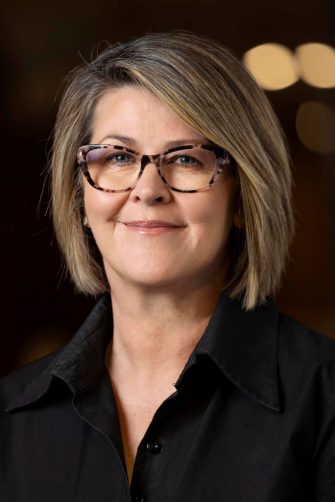

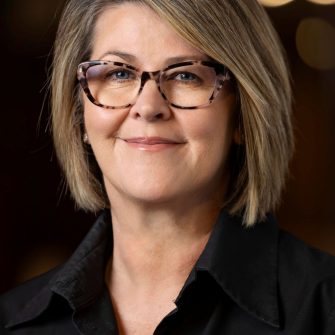
Susan Pearce AM
Susan Pearce AM is Secretary, NSW Health, appointed in March 2022. In this role, Susan is responsible for the management of the NSW health system - with over 142,000 FTE and a budget of over $30 billion - to ensure the provision of world-class, patient-centred care to the people of NSW.
Prior to her recent appointment, Susan was Deputy Secretary, Patient Experience and System Performance Division, a position she has held from November 2015. In that role, Susan had responsibility for the oversight of front-end service delivery and system performance and management across NSW Health, and improving patient experience.
Susan was also the Controller of the State Health Emergency Operations Centre (SHEOC), responsible for directing and overseeing NSW Health’s operational response to the pandemic. From February 2021, Susan led the NSW Health vaccine rollout program, establishing over 40 NSW Health vaccination clinics and more than 100 mobile, outreach and pop-up locations across the state to contribute to the high vaccination rate that have been achieved amongst the people of NSW.
Susan began her career as a registered nurse more than 30 years ago in Broken Hill and has continually worked to serve the communities of NSW, including working in number of Local Health Districts and subsequently as the NSW Chief Nurse. Susan has qualifications in Law and was admitted to the Supreme Court of NSW as a solicitor in September 2019.
Susan was appointed a Member of the Order of Australia in April 2023.
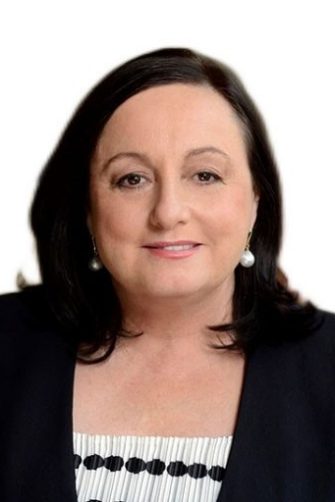

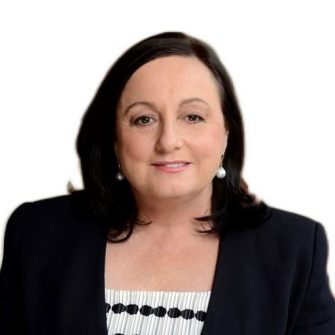
Patricia M. Davidson
RN PhD
Co-Director of the International Centre for Future Health Systems
Professor Patricia M. Davidson has served as Vice Chancellor and President of the University of Wollongong and dean of the Johns Hopkins School of Nursing in Baltimore in the United States. Her work focuses on person-centred care delivery and the improvement of the lives of people living with chronic and complex conditions. She is particularly focussed on how social determinants of health moderate health outcomes and is nationally and internationally recognised as a leader in nursing, health and medical science. In 2021, she was the recipient of the Consortium of Universities for Global Health (CUGH) Distinguished Leader Award. This honour celebrates her exceptional contributions to the advancement of global health.



Dr Michael Wright
Associate Professor Michael Wright a general practitioner (GP), health economist and health services researcher based at the International Centre for Future Health Systems at the University of New South Wales in Sydney, Australia. Michael’s research interests include evaluating the value of primary care within the broader health systems, the impact of primary care funding and policy on health outcomes. Michael is currently national President of the Royal Australian College of General Practitioners.
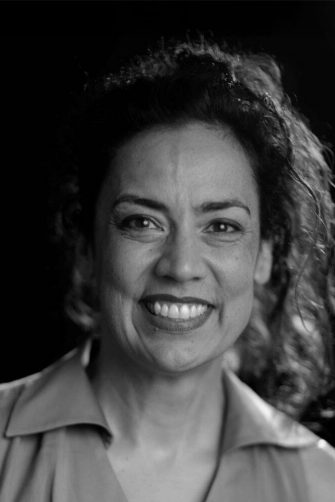

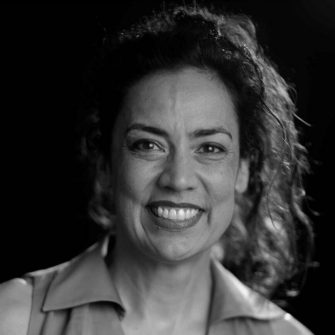
Paula Kruger
Paula Kruger is an accomplished media leader and communicator with more than 30 years of experience. She has worked in various roles, including broadcast journalist, radio presenter, manager, trainer, recruiter, and talent development.
Most recently, Paula served as the Managing Director of Sydney radio station 2SER, where her leadership grew the audience and revitalised volunteers while providing career pathways for young people entering the industry. Before that, she enjoyed a long career with the ABC, working in management, editorial, and on-air roles in Sydney, Canberra, and Perth.
Paula is passionate about journalism and ensuring that the people who have the privilege of telling our stories reflect Australia’s rich and diverse cultural landscape. Her life has celebrated this diversity; she grew up in both Australia and Fiji and takes immense pride in her Australian, Indigenous Fijian, and Indian Fijian heritage.
In the early 1990s, fuelled by a desire to embrace the call for Australia to “engage with Asia,” she ventured to the vibrant city of Bangkok, where she began her media career. There, she spent four transformative years working with journalists and media professionals from Thailand and around the world, enriching her understanding of industry disruption and diverse perspectives.



Mark Harris AO
Mark is foundation Professor of General Practice and previous director of Centre for Primary Health Care and Equity at UNSW. His main research is on long term illness prevention and management in primary health care and health equity. He is CIA in the Community Health workers Extending Care in the Community (CHECC) study. He continues to teach at UNSW and to provide clinical work is as a volunteer GP with the Sydney Asylum Seekers Centre.
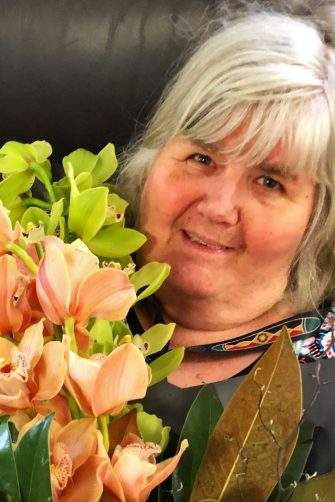

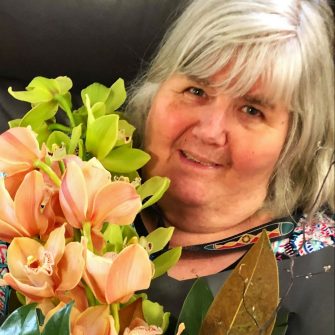
Elizabeth Harris AM
Liz is foundation director of CHETRE (Centre for Health Equity Training Research and Evaluation in Liverpool LHD) and HERDU (Health Equity Research and Development Unit in Sydney LHD). Her main research interest is in health equity, health impact assessment and unemployment and health. She is retired but continues to be involved in research in Community Health Navigators.



Ben Harris-Roxas
Ben is a health services researcher and educator with over 20 years of experience. He is internationally recognised for his work in strengthening health services, integrated care, and health impact assessment. His research focuses on improving healthcare access for culturally diverse communities, people with disabilities, and carers. He is Director of Dual Degree Programs at the UNSW Sydney School of Population Health and convenes postgraduate courses that attract over 400 students each year. Ben has been an investigator on research projects worth over $22 million. He has also consulted for the World Health Organization and held leadership roles in several international professional associations.
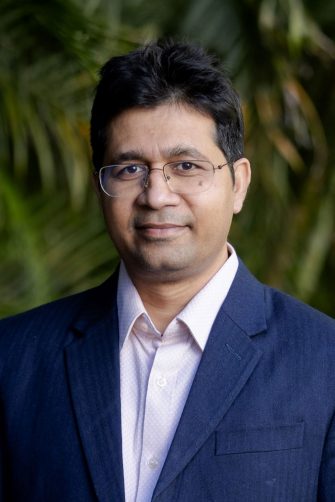

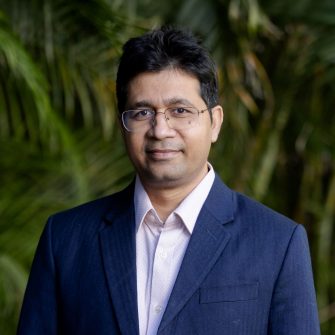
Dr Sabuj Kanti Mistry
Sabuj is a lecturer at the School of Population Health, UNSW Sydney with an adjunct affiliation as Director. He is a public health researcher with more than a decade’s experience in conducting research related to chronic disease prevention and management globally using community-based and health systems approaches. His particular focus is to address barriers to accessing health and social care services among people from disadvantages communities in Australia and overseas employing community health navigators. He has a strong track-record of more than100 publications with 3000+ Google Scholar citations. He also received more than 1.5 million in grant funding to develop interventions improving health of diverse communities in Australia and overseas.
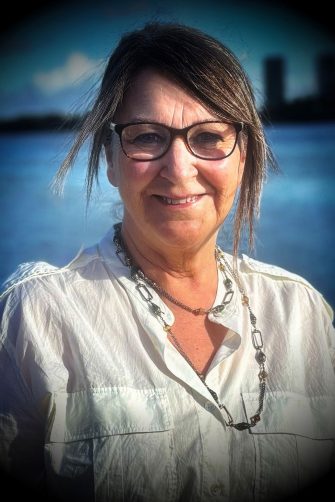

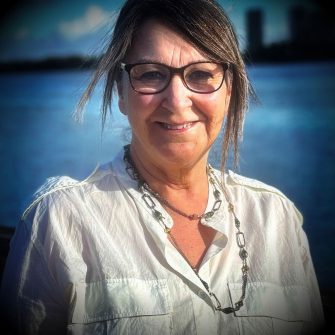
Sharon Parker
Sharon is a researcher and program manager at the International Centre for Future Health Systems (formerly the Centre for Primary Health Care and Equity), the University of New South Wales. She has a 20yr nursing background and has worked in research for 20yrs. Over her time at UNSW, she has managed several complex multi-site health research projects including the Preventive Evidence into Practice (PEP) trial, The Health eLiteracy for Prevention in General Practice (HeLP-GP) trial and the Community Health Extending Care into the Community (CHECC) trial. Her experience includes the evaluation of different models of health service delivery, particularly in respect to the methods used to promote collaboration between service providers and promote equitable access to health services for consumers. Her research interests include disease prevention, chronic disease management, primary care, mental health and homelessness. I have a particular interest in the utilisation of evidence for clinical practice.
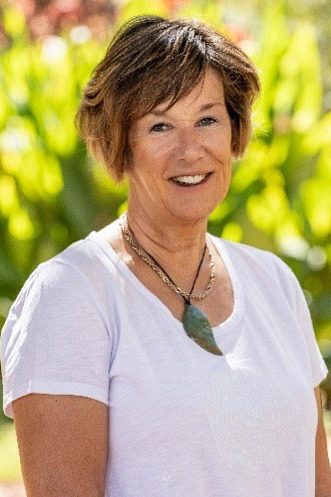

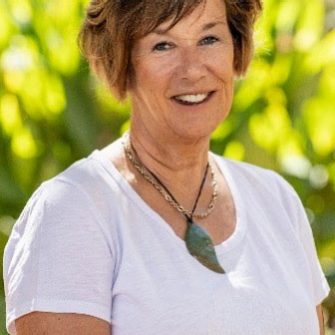
Fiona Doolan-Noble
Fiona brings extensive experience in nursing and rural health service management to her work. Her research focuses primarily on rural and remote health and social care challenges. She is particularly passionate about developing strategies that help individuals with complex health conditions and difficult life circumstances navigate fragmented health and social care systems to achieve their best possible health outcomes.
Posters
The Forum hosted a series of Poster displays showcasing critical insights into national and international research.
Interprofessional collaboration between pharmacists and community health workers to improve medication adherence: a systematic review
The University of Sydney
Providing information and links to palliative care and bereavement in South Australia
Palliative Care Connect
The Role of Link Workers in Social Prescribing: Key Findings from Research in the United kingdom
University of Oxford
Implementation and sustainability of involving Bilingual Community Navigators (BCNs) in general practice to improve equity
International Centre for Future Health Systems UNSW
Key methodological, recruitment, and implementation challenges within a randomised trial of a Community Health Navigator intervention with patients transitioning from hospital to home
UNSW
Development of a Community Health Navigator Training Program
UNSW
Making healthcare accessible for everyone
Health Support Navigation Service (HSNS)
From Hospital to Home: A Qualitative Analysis of Community Health Navigators in Chronic and Complex Care Transitions
UNSW
Training the Future Health Navigator Workforce: A Vocational Pathway for Peer Health Navigators in Australia
Northern Health
Stay in touch
If you have any questions or need more information, please contact us at ICFHS@unsw.edu.au
Acknowledgement of Country
On behalf of the University of New South Wales we respectfully acknowledge the Bidjigal clan of the Dharawal Nation, alongside the Biripai, Dharug, Gadigal, Gumbaynggirr, Ngunnawal and Wiradjuri peoples, on whose unceded lands we are privileged to learn, teach and work. We honour the Elders of these Nations, past and present, and recognise the broader Nations with whom we walk together. UNSW acknowledges the enduring connection of Aboriginal and Torres Strait Islander peoples to culture, community and Country.

